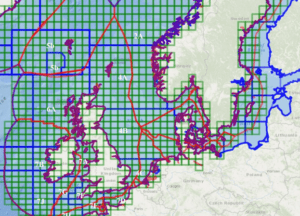News
Could Danish concerns over fishing rights be remedied by Scottish independence?
This article is more than 4 years old.
Last month the Danish minister for fisheries accused the UK government of planning to go back on its post-Brexit deal to allow full fishing access until 2026, but longer-term is there another solution to Denmark’s fishing woes?

Scotland is after all on the same latitude as Denmark (photo: Department of Food and Resource Economics)
The UK government recently announced plans to ban bottom trawling in a number of areas that serve as important habitats to marine wildlife in decline.
One of these areas included Dogger Bank, a sandbank in the North Sea that is an important home to a variety of aquatic life including starfish and Atlantic cod.
Despite the environmental concern, the move has been undermined by the UK government itself as it may be going back on a deal previously struck with the EU.
Danish concerns
This comes at a time when the UK is also in conflict with France regarding fishing rights. The post-Brexit Trade and Cooperation Agreement guarantees EU vessels full access to much of the UK’s waters, including the North Sea area Denmark is concerned about.
The Danish fisheries minister, Rasmus Prehn, has specifically conveyed this concern in an interview, emphasising the pressures already faced by Danish vessels post-Brexit.
Prehn stated in an interview with the Guardian newspaper that if the UK intended to change its fishing agreement with the EU, “it is a very big problem for us”.
Scottish solution
There is one pathway that could see these pressures significantly reduced.
Scotland voted almost entirely to remain in the EU, but nonetheless was forced to leave with the rest of the UK.
Given this, it is no surprise that the country’s current main political party, the SNP, is in support of EU membership.
Fair access in the future?
Whilst rejoining the EU in the case of Scottish independence may be a lengthy process, it is not impossible and would involve support from member states and realignment with EU law.
With Scotland holding 60 percent of the UK’s total waters, adhering to the common fisheries policy would ensure that the Danish fleet had fair access to North Sea waters and vice versa.
If Scotland were to gain independence, pressures faced by Danish fishermen would be eased significantly by Scottish co-operation with the EU on fishing issues in the North Sea.










































